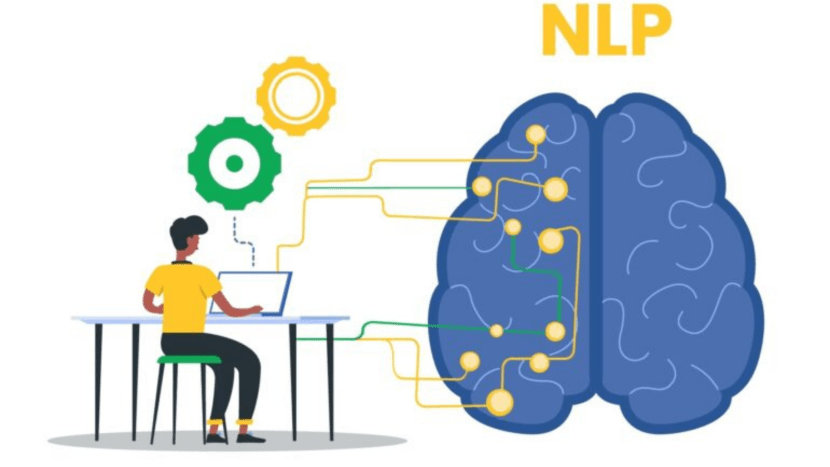In the dynamic landscape of communication, effective speaking skills are invaluable. Whether you’re a seasoned public speaker, a business professional, or someone looking to enhance personal communication, Neuro-Linguistic Programming (NLP) offers a compelling avenue for improvement. This blog will delve into the depths of NLP and provide practical strategies for NLP speaker performance enhancement.
Understanding NLP: A Brief Overview
NLP, or Neuro-Linguistic Programming, is a psychological approach that explores the relationships between neurological processes, language, and behavioral patterns. Developed in the 1970s by Richard Bandler and John Grinder, NLP seeks to understand how individuals perceive the world and how these perceptions influence behavior.
In the context of speaker performance enhancement, NLP provides a toolkit of strategies to refine communication, build rapport, and influence audiences positively.
Building Rapport through Mirroring and Matching
One key aspect of effective communication is building rapport with your audience. NLP introduces the concepts of mirroring and matching, techniques that involve mimicking certain aspects of the other person’s behavior to establish a connection.
Mirroring involves subtly imitating the physical gestures, posture, and even breathing rhythm of the person you are communicating with. This creates a subconscious sense of familiarity and connection.
Matching, on the other hand, involves aligning your communication style with that of your audience. If your audience is enthusiastic and animated, matching their energy level can enhance engagement.
By incorporating mirroring and matching into your speaking repertoire, you can establish a deeper connection with your audience, making your message more impactful.
Mastering the Art of Anchoring
Anchoring is a powerful NLP technique that involves associating a specific stimulus with a particular emotional state. In the context of speaker performance, anchoring can be employed to enhance your presence and influence.
Begin by identifying a positive and confident state of mind you want to associate with your speaking engagements. This could be a moment of success, happiness, or accomplishment. As you consistently link this emotional state with your speaking activities, you can create a powerful anchor.
Before stepping onto the stage or into a meeting, trigger this anchor to evoke the desired emotional state. This can boost your confidence, calm nerves, and project a charismatic presence, ultimately enhancing your overall speaker performance.
Crafting Compelling Stories with NLP Language Patterns
Storytelling is a fundamental aspect of engaging communication. NLP introduces language patterns that can elevate your storytelling and captivate your audience.
Sensory-rich language: Incorporate sensory details into your stories, appealing to the listener’s visual, auditory, and kinesthetic senses. This not only makes your narrative more vivid but also creates a deeper impact.
Meta-model questioning: Challenge and expand your audience’s perceptions by using meta-model questions. These questions encourage deeper thinking and engagement, making your message more thought-provoking.
Embedded commands: Embed subtle commands within your narrative to influence your audience’s thoughts and actions. These commands, when strategically placed, can guide the listener’s attention and response.
By mastering these NLP language patterns, you can transform your storytelling into a compelling and persuasive tool, leaving a lasting impression on your audience.
Overcoming Public Speaking Anxiety with NLP Techniques
Public speaking anxiety is a common hurdle for many individuals. NLP offers effective strategies to overcome this anxiety and enhance speaker confidence.
Reframing: NLP encourages reframing negative thoughts and perceptions into positive ones. Instead of viewing speaking engagements as daunting tasks, reframe them as opportunities for growth and impact. This shift in mindset can significantly reduce anxiety.
Visualizing success: Use the power of visualization to mentally rehearse successful speaking experiences. By vividly imagining yourself speaking confidently and receiving positive responses, you can build a positive association with public speaking.
Anchoring confidence: As mentioned earlier, anchoring can be employed to create a state of confidence. By consistently anchoring confidence before speaking engagements, you can condition your mind to associate public speaking with a positive and empowering emotional state.
Integrating NLP into Your Daily Communication Practices
The benefits of NLP for speaker performance extend beyond formal presentations. Integrating NLP techniques into your daily communication practices can enhance your interactions in various contexts.
Active listening: NLP emphasizes the importance of active listening to understand the nuances of communication. Practice listening with intention, seeking to understand not just the words but also the underlying emotions and perspectives.
Building rapport in conversations: Apply mirroring and matching techniques in one-on-one conversations to build rapport and establish a connection. This can be particularly useful in professional settings, such as job interviews and client meetings.
Adapting communication styles: Recognize and adapt your communication style based on the preferences and behaviors of those around you. This flexibility can make your communication more effective and relatable.
Conclusion: Elevate Your Speaking Game with NLP
In the realm of speaker performance enhancement and NLP speaker success strategies, Neuro-Linguistic Programming offers a rich array of strategies to refine communication skills, build rapport, and overcome challenges. By incorporating mirroring, matching, anchoring, and language patterns into your speaking repertoire, you can captivate your audience and leave a lasting impact.
As you embark on the journey of integrating NLP into your communication practices, remember that mastery takes time and practice. Consistency and dedication to refining these techniques will undoubtedly contribute to your growth as a confident and influential speaker. Embrace the power of NLP, unlock your potential, and watch your speaker performance soar to new heights.

